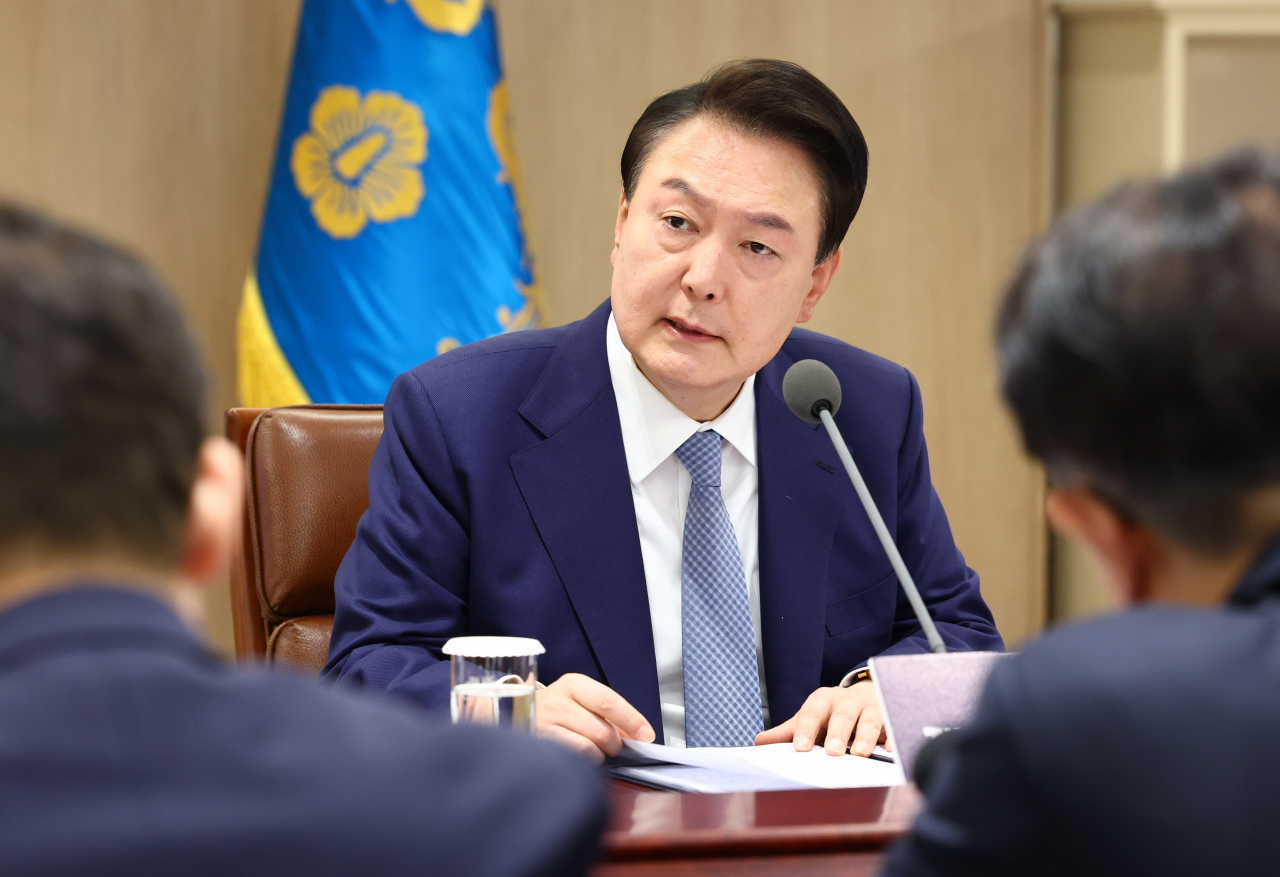South Korea unveils W26tr support program for chip industry
Yoon calls semiconductor industry key to national economic growth
By Jo He-rimPublished : May 23, 2024 - 15:44

South Korean President Yoon Suk Yeol on Thursday unveiled a national support program worth 26 trillion won ($19 billion) to boost the country's semiconductor industry, in a move to up its game amid the global competition.
The comprehensive chip support package includes financial programs, research and development strategies and infrastructure support. But it came short of direct subsidies which industry players here have been requesting to compete with international rivals.
"With tax credit support, conglomerates will increase investment, and when profit grows, they will create more jobs. It will lead to an increase in tax revenue. Semiconductors are (key to) livelihoods,” Yoon was quoted as saying during the interagency meeting on the semiconductor industry held at the presidential office.
Over criticism that the government's support package only benefits large conglomerates in the chip sector, Yoon called semiconductors key to the growth of the national economy. He said that more than 70 percent of the program's beneficiaries would be small and medium enterprises.
The main program in the support package is the semiconductor financial loan program worth 17 trillion won, aiming to assist chipmakers’ facility investments. The state-run Korea Development Bank will offer loans to chipmakers at low interest rates.
The government will also establish a chip fund worth 1.1 trillion won, designed to support fabless firms as well as parts and equipment firms to grow in size.
The government also plans to extend tax cut benefits that are set to expire at the end of the year for chipmakers, to support their large-scale investment in the Yongin mega cluster project, set to be the world's largest chip cluster worth $481 billion (622 trillion won).
Saying "time is a subsidy," Yoon promised to do his best to support the chipmakers, via the speedy construction of infrastructure including electricity, waterworks and roads.
At the meeting, Yoon also highlighted the importance of the logic chip market, and ordered the ministers to go all-out for support.
"The success and failure of the chip industry will depend on logic chips, which take up two-thirds of the total market. Korea only accounts for 1 percent of the fabless market share, and there is a big gap with the market leader in the foundry market as well," Yoon was quoted as saying.
In a separate press conference, Finance Minister and Deputy Prime Minister Choi Sang-mok elaborated on the latest chip package, and tried to allay concerns about the country not providing direct subsidies.
Chip subsidy programs are widespread among countries with powerful chip industries such as the US, EU and Japan. But in Korea, home to the world’s two largest memory chipmakers, Samsung Electronics and SK hynix, current government support leans more towards granting permits for smooth operation and loosening regulations.
"Countries with decent chip manufacturing capability, like Korea and Taiwan, do not have direct subsidies," Choi said.
"The countries that have to build chip facilities from scratch are giving out subsidies as incentives. What we are offering are tax benefits and they are similar to subsidies in their character. When it comes to tax credits, we offer the highest level of incentives," Cho said.
In terms of R&D and fostering talent, the government will expand its amount of investment to over 5 trillion won in the next three years.
The minister said the government will come up with the details of this support package in June, as well as a strategy for fostering the logic chip sector in August.



















![[Today’s K-pop] Treasure to publish magazine for debut anniversary](http://res.heraldm.com/phpwas/restmb_idxmake.php?idx=642&simg=/content/image/2024/07/26/20240726050551_0.jpg&u=)